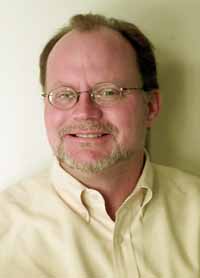Journalists Tend to Mistrust Education Research
Almost 85 percent of the journalists polled in the e-mail survey say they find education research only "somewhat" or "marginally" credible.
The goal of the Hechinger Institute on Education and the Media is to improve the coverage and understanding of education and to deal with issues at the nexus of education and the media.
The journalists' survey was sent in mid-November to 161 writers, editors and editorial writers who specialize in education at major newspapers and who had attended Hechinger Institute seminars during the previous two years. The survey, which was partially underwritten by the Spencer Foundation, brought 117 responses.
When asked to elaborate, many journalists said education research often is ideologically motivated and that many studies are so poorly written or jargon-laden that they are difficult to understand. Many also said they feel ill-equipped to detect biases and methodological errors and that they would love to have assistance from an objective, neutral source in identifying valid studies.
"It's hard to sort out the good from the bad," said Anna Varela, the education editor at the Atlanta Journal-Constitution. "A lot of education research seems poorly conducted-studies of groups that seem too small, that aren't conducted for a long enough period to be meaningful-and highly politicized."
A separate and smaller survey of deans of education schools across the country suggests that the journalists are not alone in doubting their capacity to judge the quality of research. Not a single dean surveyed rated journalists as even "adequate" in their understanding of research with most saying that, in their experience, reporters had only a "marginal" grasp of the field.
Taken together, the surveys suggest a need for more formal training of journalists in areas such as statistics and quantitative and qualitative research methods. But the journalists' responses also make it plain that if researchers want their work to be better understood, they have to work harder at communicating with a general audience. That "is our biggest Achilles heel," said P. David Pearson, the dean of the Graduate School of Education at the University of California, Berkeley. "We want to provide too much nuance and too complex a set of qualifiers."
Inside TC would like to thank Richard Colvin, the Deputy Director of the Hechinger Institute on Education and the Media for contributing to this issue.
Published Monday, Mar. 3, 2003
